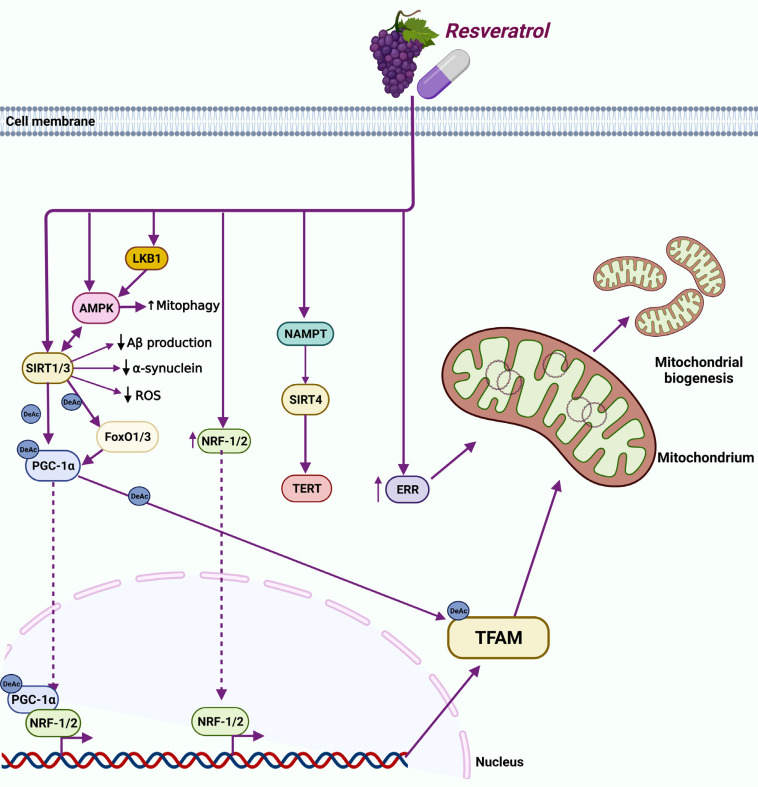Fig. (2).
Overview of resveratrol-modulated mitochondrial biogenesis in neurodegenerative diseases. PGC-1α: resveratrol-induced mitochondrial biogenesis in neurodegenerative disorders can take place by either SIRT1/PGC-1α/NRF-1 or SIRT1/FoxO3a/PGC-1α pathways, where resveratrol activates PGC-1α in a SIRT1-dependent manner. NRF-2: resveratrol increases NRF-2 protein levels and promotes NRF-2 nuclear translocation. SIRTs: resveratrol-activated SIRT1 can protect neurons by reducing ROS accumulation, Aβ oligomer formation, and α-synuclein accumulation. In addition, resveratrol-activated SIRT1 restores mitochondrial function by increasing PGC-1α and TFAM expression. AMPK: in neurons, resveratrol-stimulated AMPK activity requires activation by either SIRT1 or the upstream activator LKB1. Moreover, the resveratrol-activated AMPK/mitophagy pathway alleviates mitochondrial network fragmentation and dysfunction. ERRα: resveratrol enhances mitochondrial biogenesis by increasing ERRα expression and activity. TERT: resveratrol-mediated activation of TERT depends on nicotinamide phosphoribosyltransferase (NAMPT) activation, which activates SIRT4. TFAM: mitochondrial biogenesis-associated RES-elicited neuroprotection acts via the SIRT/PGC-1α signaling pathway, ultimately affecting TFAM acetylation rate. Dashed lines are for translocation.

